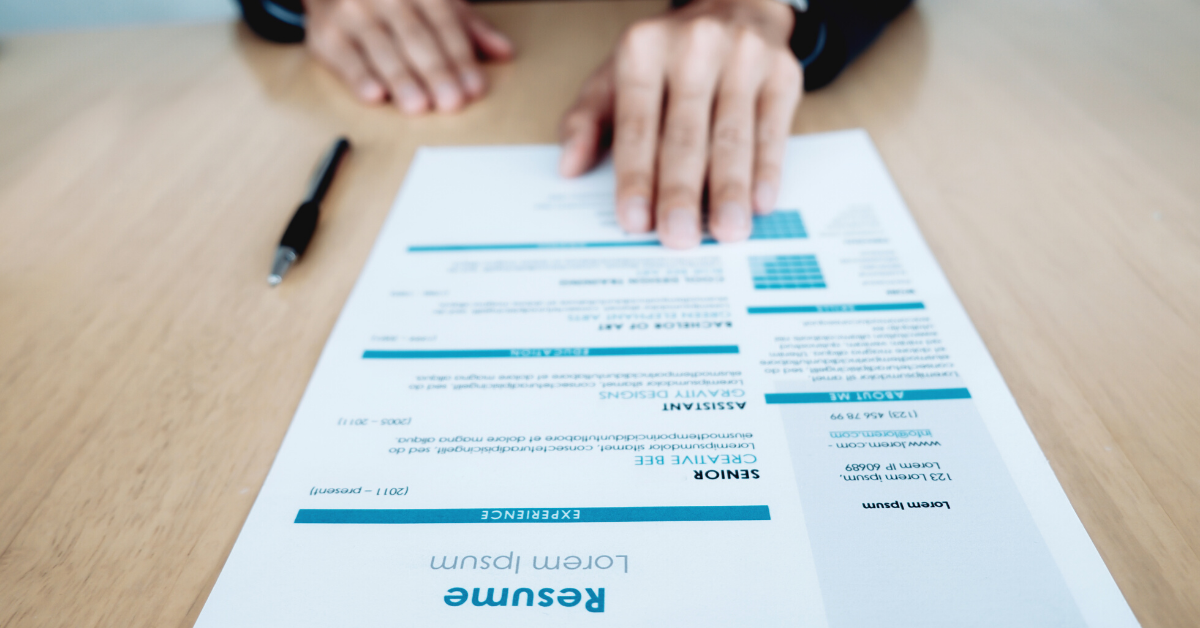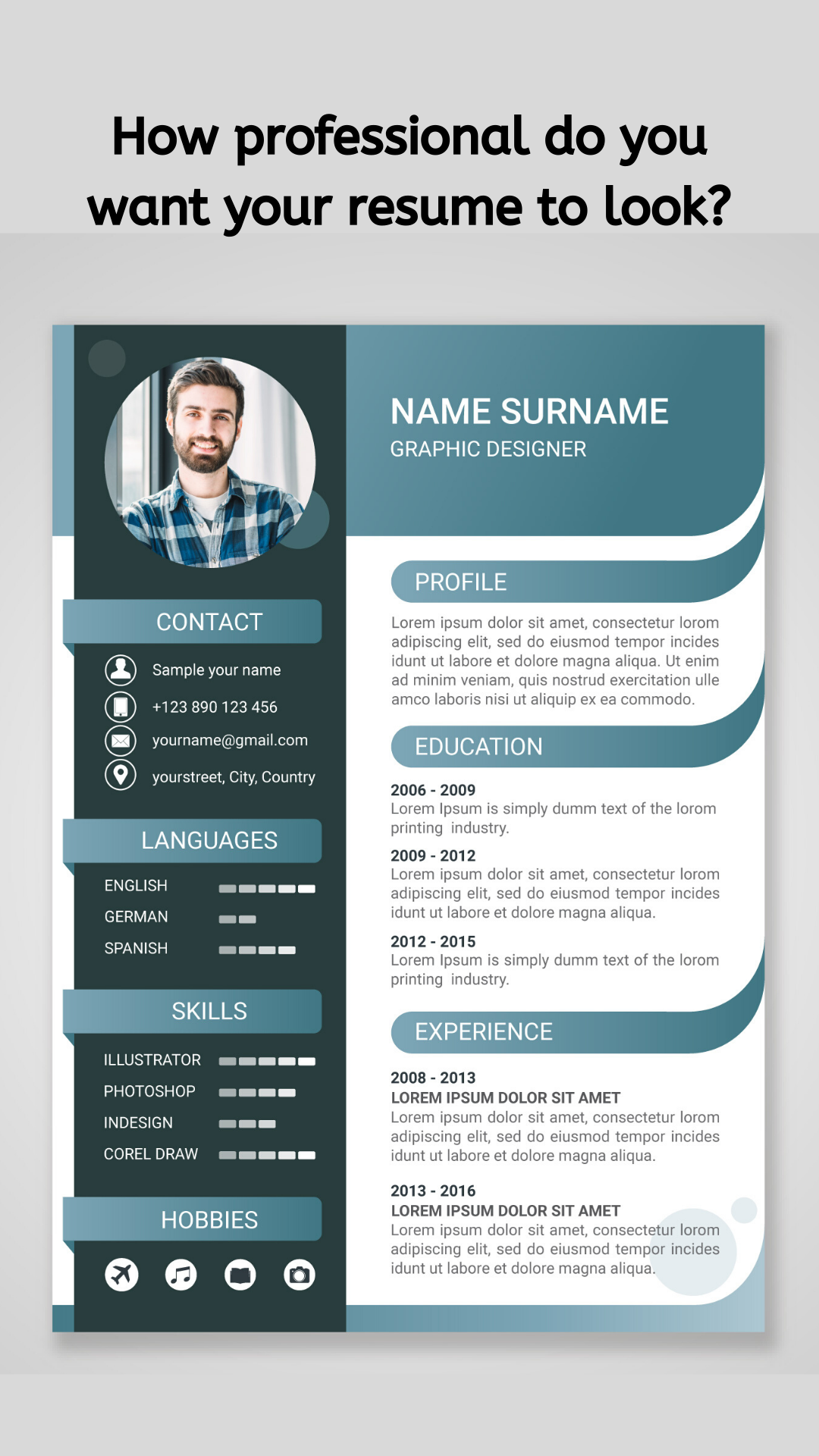What Does An Impactful Resume Look Like?
You’ve got the right skills for the job and there’s nothing to stop you from bagging an offer. But there’s just one thing holding you back – your resume! During the job interview and selection process, you want to make the perfect first impression. You groom yourself, press your clothes, shine your shoes, carry a copy of your resume… maybe two, just in case, and a neat portfolio. You stand in front of the mirror to practice your elevator pitch multiple times.

While you’ve made all attempts to pass the interview, how much attention have you paid to your resume? Yes, your resume.
Have you perfected it yet?
Read on to understand why you need to have the perfect resume and how to make one.
The interviewer has to scan many resumes. So, what are they looking for to find that perfect fit? A resume with information about who you are, your experience, accomplishments and your key skill sets.
What an interviewer does not want to see in your resume
-
Long, bulky sentences or paragraphs
-
Irrelevant information that is not professionally oriented, like extremely long sections on ‘about me’ or ‘hobbies’
-
Formatting that makes the information hard to follow improperly formatted resume
-
Repetitive points
We will be touching on these points and more as you go further down this article or you can simply check out some resume writing skills online.

Why is it so important to craft the perfect resume?
We often consider our resume as just a piece of paper that exists only to inform potential employers about our education and experience. We jot down details without giving it much thought and that is where we go wrong. Here’s why you need to have the best skills for resume writing.

Your resume offers the interviewer their first impression of you. It is a paper introduction before any technical questions are asked; essentially, it’s an extension of you and your ability to present yourself. The resume is a means to establish your potential and worth before an interviewer has met you. So, review your resume thoroughly before any interview because you will be asked questions based on the points you’ve included.
What makes a perfect resume?
Since this is your first identity in an interview session, we’ve shared eight impactful tips to make the perfect resume.
1. Review examples and choose a format: You can find different resume writing skills online, right from a chronological format to even a video. Select a format that pertains to your type of career or nature of work. For instance, if you are a designer, then your resume would have to stand out in terms of how you’ve crafted it and the use of colors to complement your work.

2. Text and Content: Be consistent with the type of font you use. Do not try to use multiple fonts, different sizes and color options. Keep it basic and simple. Make sure that the fonts you select are easy to read.
Your resume should be easy to understand. Do not use long or technical words that are difficult to pronounce or understand. Shorten sentences to keep the interviewer engaged.
Add basic information like your name, address, and contact number. This can be followed by your email ID, social and professional networking links that may help the interviewer know more about you.
Refrain from using negative words in your resume like ‘being unemployed at the moment or looking for a job on an immediate basis’. By stating this, you may come off as sounding desperate. Your interviewer might conclude that your priority is getting any job, no matter what the pay or role. Instead, you could say that you’ve been on a career break and mention the ways you’ve upskilled.
Be prepared to discuss anything and everything on your resume. Here’s a short video to show you what might happen if you go unprepared for an interview.
Do not sound too promotional. Giving a laundry list of positive qualities about yourself may make you seem superficial. How much is too much? Well, just categorize each positive quality under one section called skills and keep it to that.
Prioritize the topics in your resume by mentioning the important and relevant experiences first. Describe them briefly. Avoid repetitive sentences.

3. Talk about your accomplishments: If possible, quantify them. This could be the total number of years of work experience, the number of people managed, projects managed and/or executed, industries catered to, achievements and awards, articles published if any.
4. The use of keywords: The keywords/phrases mentioned in the job offered should match the skills you possess. So, if the job offered talks about effective communication and rapport-building skills, you could highlight that part of your work in the resume. This will help boost your relevance and also help the interviewer to easily access this information in your entire resume copy.
5. Clarify, if asked: Your resume may include the mention of something that an interviewer might frown upon. If you’ve been asked to clarify it then do so with relevant reasons. For example, if you’ve been on intermittent career breaks, the interviewer is bound to ask why. Just FYI, there are several productive ways to spend your career break.
Other similar types of questions may relate to the challenges faced in your previous organization. The interviewer is trying to understand your professional work approach, and how you can manage and execute it.
6. Add only what you think matters: It’s easy to get carried away when you’re compiling a list of your accolades and experiences. Writing more won’t increase your chances of being selected but writing effectively will. Once you’ve created this list, screen it for anything that you think can be described in fewer words.
For example, if an app developer has created applications that are gaining momentum with users, she can include the number of apps developed and web links so that the interviewer can check for themselves.
7. Giving it your personality: To make your resume stand out, you need to give it a personality. Your personality! This way your resume will be unique in its own way, just the way you are. You can choose an approach that aligns with the field you’re applying for or one that best showcases your prior experiences and then create a theme around it.

For example, if you are an accountant, try to list things that show off your skills with numbers and formulae. If you are a graphic designer, then your whole resume can be your canvas.
8. Lastly, do a hygiene check: This includes your formatting, grammar / spell-check, info check, flow, file name, date check, and link to your portfolio if any. Inspect every detail to not miss on any point. Always share your resume in a PDF format, never in an editable version such as MS Word or Google Docs. You could also get your resume critically evaluated from a professional resume checker or from your friend to get a new perspective.
You could mention a part in your resume saying learnings or key skills and list a few of them which you’ve mastered at work. This will help the recruiter understand your key areas of strength. They will ask you questions related to applying those skills. So, make sure that you prepare for not only what is mentioned on your resume but the technical questions too that the interviewer might ask.
Writing an effective resume that creates an impact and a lasting impression could be considered as painting a portrait of yourself with words. Think of your interviewer or potential employer as a buyer. A buyer, who is wandering in a gallery full of colorful exhibits but will only buy a portrait that catches his or her eye.
Check out some of the best online skills for resume writing or enroll in our Write a Winning Resume Learning Pathway.